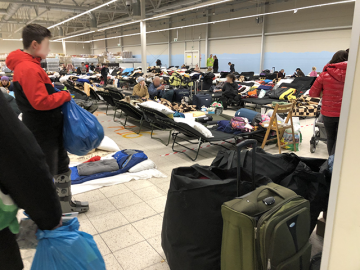So far, the situation at the borders with Ukraine remains difficult, with large numbers of people seeking protection in EU countries.
FRA observed that all actors, including many volunteers, are fully involved in supporting the vulnerable women and their children, older people, as well as people with disabilities crossing the border. Apart from humanitarian aid, people fleeing the conflict will need systematic psychological support, as they are clearly traumatised, particularly the children.
Early observations also point to a high risk of human trafficking. In addition, given the pace of change and highly stressful situation dealing with a very high number of people, there is a risk of discrimination, as reported by civil society and the media. Authorities must take care to guard against discriminatory acts and civil society should report any incidents.
In addition, FRA notes the need to consider longer-term planning. This will need to cover such issues as relocation and integration.
Over the last 10 days, FRA visited Hungary, Poland, Romania and Slovakia to report on fundamental rights issues. It was an opportunity to assess the situation on the ground and the needs of national and local authorities.
While there, FRA experts spoke to various parties, in particular law enforcement, national and local governments, as well as civil society, EU agencies and international organisations to get a better understanding of how FRA can assist.
A summary of FRA findings will be published next week.
